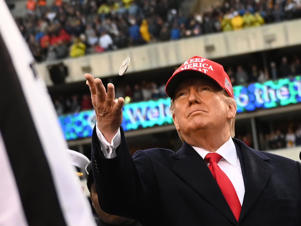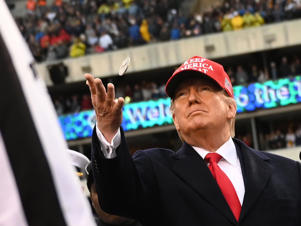
© Provided by Business Insider Gambling is illegal in most parts of China, apart from the state-owned national lotteries. Getty Images
- Gambling is illegal in most parts of China but experts say it’s widespread due to copycat websites that “mirror” established ones.
- Betting companies sometimes hire people to “infiltrate” chat groups and encourage people to gamble.
- Insider found 59 mirror sites operated by subsidiaries of UK-based Bet365.
Tao Huang gambled online for 8 years.
Though he always used the same online account, the web address he visited would change all the time.
Huang, whose name has been changed to protect his identity, is from Guangxi in Southern China.
He’s one of many people in the country who has visited “mirror” websites: identical clones of betting sites that are hosted on obscure web addresses to get around government blocks on the main URLs of gambling companies.
Huang told Insider through an online translation tool: “The website is blocked in China, but it will still appear in front of you as long as you need it. You don’t need a VPN.”
Gambling is illegal in most parts of China, apart from the state-owned national lotteries, and recognised gambling sites are blocked from Chinese users.
The “mirror” sites Huang says he played on are hosted by subsidiary companies of UK-based gambling firm Bet365, one of the world’s biggest sports betting sites. Insider has verified this using Website Informer and Companies House, the UK’s public companies register.
The sites look exactly the same as the main Bet365 site, but have different IP addresses and URLs, and Huang’s Bet365 customer account worked on them too, carrying across the money he has put in and won.
Government censors eventually identify mirror websites and block them, but more sites are instantly created in their place to keep ahead of censors, according to Ben Lee, Managing partner at IGamiX Management and Consulting in Macao, China.
“It’s a game of whack-a-mole,” he said.
In June, Insider found 59 mirror sites operated by subsidiaries of Bet365. It is one of many gambling companies that have mirror sites.
Experts told Insider mirror websites are a “common” practice by betting companies in countries that don’t allow gambling. “It’s very, very common. China has an active online gambling presence,” said Ben Lee.
Experts told Insider that it’s difficult to quantify the size of the market, but the People’s Bank of China estimated that money from betting-related activities flowing out of China was around ¥1 trillion ($54 billion) in 2019, a report by the Asian Racing Federation states.
According to Article 303 of China’s Criminal Code, it can be an offense to organize Chinese citizens to participate in gambling activities outside the country. The Chinese government made an amendment in 2021 to its gambling law to enhance penalties for offshore gambling.
However, David Lee, a gambling lawyer at Lin & Partners, says the law “doesn’t explicitly mention whether the Chinese law enforcement can take actions against gambling operators outside China.”
“It is questionable whether the Chinese law enforcement can prosecute a crime committed outside China, in particular in a jurisdiction where the involved offshore gambling activity has been duly licensed,” he added.
Bet365 said that it doesn’t believe operating in China is illegal, and that it is licensed by “relevant regulatory authorities across a variety of jurisdictions and is compliant with all applicable legislation”.
It told Insider that, “in the view of Bet365 and its lawyers” the stronger penalties China introduced last year do not alter “the position for an offshore operator offering gambling services remotely, with no physical presence, people, assets or infrastructure in the jurisdiction.”
It added that it believes: “Chinese law does not extend to the provision of services into China by offshore gambling operators and service providers.”
A virtual army
Huang said it was easy to find a link to a new mirror gambling site once an old one has been blocked: his friends sent him the URL. His account and the money in it remained the same when he moved to a new site.
But “friends” sharing gambling links on Chinese social media might have a hidden agenda.
One way gambling sites attract customers is to hire young people to pose as players and “infiltrate” online chat groups on platforms popular in China like Weibo and WeChat, according to Ben Lee.
They make friends with people and claim that they have won money gambling, and encourage other users to visit mirror sites. David Lee says this marketing is “the key to success” for online gambling operators.
The workers usually live outside China in countries including the Philippines or Cambodia, and are paid around $1000 a month, Ben Lee said. “They need a virtual little army of young Chinese youth to do the telemarketing,” he added.
The Philippines justice ministry plans to deport about 40,000 Chinese people working in the country for offshore gambling companies, Reuters reported in September. It added that the country’s liberal gaming laws let such companies target players in China.
‘I need to get my money back’
Huang had his Bet365 account temporarily frozen in May.
In emails seen by Insider, Bet365 asked him to show a “certificate of deposit” proving that funds of 20,000 Yuan that he deposited into his account had come from a bank account in his name, in order to regain access to his account. He was still waiting to receive his funds when Insider last spoke to him in the Spring, and hasn’t since responded to questions.
Bet365 told Insider it was unable to discuss individual player accounts. The spokesperson added that the company is licensed and regulated in Gibraltar, and in accordance with Gibraltar regulations, customers can be required to show documentary evidence to verify identity or the source of funds.
“The terrible thing is that I still have 260,000 Yuan ($37,000) in my account. This is all my savings.” Insider couldn’t verify the amount Huang said he has lost access to.
Players like Huang believe they have little to no way of getting legal help if they lose money, because of gambling being illegal in China, with the risk of prison time.
“I hope regulators can protect gamblers like me,” he said, adding that he thinks it would be difficult to get his money back.
When Insider spoke to Huang, he implied he wanted to stop gambling and showed Insider an email he sent to a gambling addiction charity to get support.
“Gambling is really abominable,” he said. “I need to get my money back.”

